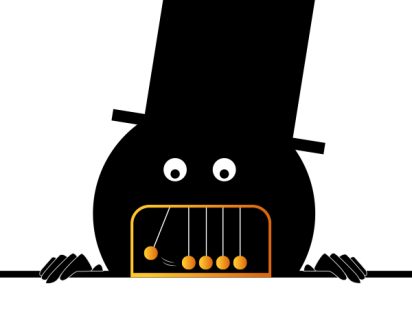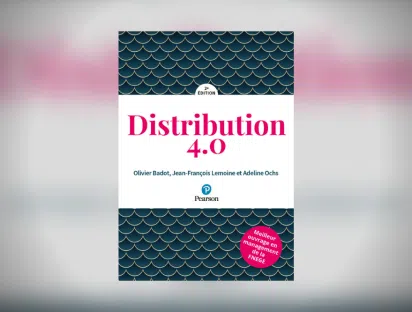At his press conference on Wednesday 12 June 2024, three days after announcing the dissolution of the National Assembly, the President of the French Republic, Emmanuel Macron, declared: “Since Sunday evening, the masks are coming off and the battle of values is out in the open” (1). Without seeking to analyse the relevance of the expression “the masks are coming off” in today’s French electoral context, it is worth exploring its meaning.

The phrases “the masks are coming off” or “to throw the mask away” mean “to show one’s true appearance, to stop concealing” (2). Here the word “mask” does not mean “an object representing a face or an animal mouth, which symbolises an affect, a behaviour or a role, worn by theatre actors in various cultures” (3). Rather, it symbolises “all deceitful attitudes, deceitfulness,” the “deceptive appearance under which one endeavours to hide one’s true feelings” (4). The idea of “clarification” put forward by the French President was aimed precisely at revealing, if need be, such “deceitful attitudes” (5).
However, this interpretation – with the mask being understood as a concealment of reality or truth – raises a difficulty. If we associate the mask a person wears with the role he or she plays in society or in interpersonal relationships, the expression “the masks are coming off” becomes problematic. The masks of the political leaders involved in the recent dissolution of the French National Assembly did not “come off:” these leaders continued to fulfil their roles – to wear their masks. It is true that some of them were able to “clarify” their positions after the dissolution, but they did so while remaining in their roles or using their roles as a starting point.
In support of this second interpretation, we can put forward the well-known argument that we value our masks, not least because they identify us, enable us to relate to others and protect us. Nietzsche said as much in an aphorism on “the problem of the actor.” In the following extract, he describes the absorption of an actor in his or her role, and then generalises this point:
“Falseness with a good conscience; the delight in pretence erupting as a power that pushes aside, floods, and at times extinguishes one’s so-called ‘character’; the inner longing for a role and mask, for an appearance (Schein); an excess of capacities for all kinds of adaptation that can no longer be satisfied in the service of the nearest, most narrowly construed utility – perhaps all of this is distinctive not only of the actor?” (6)
It’s not just that society requires everyone to wear masks: the mask itself has an “assimilating force” that responds to a certain psychological disposition (7).
This is how, in social life, we live “among others who are disguised:”
“We […] modestly don the cloak in which (as which) others know us, respect us, seek us, and so we appear in company, i.e. among others who are disguised but don’t want to admit it. Like all clever masks we, too, politely prop up a chair against the door when confronted with curiosity about anything but our ‘cloak.’” (8)
Naturally, there can be moments when we literally drop the mask, when we become a singular person, devoid of any role. These can be moments of astonishment, when our role no longer “controls” our reactions, or moments of confession, self-criticism, revelation or conversion. In business life, they can also occur in the context of what the philosopher Robert Solomon called “that familiar tragedy in which a pressured employee violates his or her ‘personal values’ because, from a purely business point of view, he or she ‘didn’t really have any choice’” (9). At a moment like the ones we have just mentioned – a moment of personal crisis –, this employee might want to put an end to his or her conflict of values, in other words, in a literal sense, “take off the mask.”
The concept of a mask lends itself to metaphors. A striking illustration can be found in an article on academic business ethics. The metaphor it proposes is based on the masks worn by commedia dell’arte actors, representing typical characters (Arlecchino, Brighella, Pantalone, Columbina, etc.). The authors of the article (including Edward Freeman, the creator and promoter of the “stakeholder theory”) highlight a kind of paradox: while these masks are fixed, rigid and predetermined, the actors enjoy a great deal of freedom of interpretation, including recourse to improvisation. This is where the metaphor comes in:
“If we transfer the metaphor of the mask to the world of today’s organizations, we can see that what matters for actors to be successful when working within a predetermined ‘role’ is to keep the individual creative freedom and ‘fill the shell’ with their own full humanity. Similarly, we can imagine that for successful managers of today’s organizations it is important to ‘fill the role’ that is entrusted to them (or that they have chosen) with the same freedom to express their own creativity and personality that was required to the Commedia dell’Arte actors.” (10)
The actors of the commedia dell’arte “create a shared meaning in a collaborative process, where each actor accepts, interprets, and reacts to her partners on the stage.” Company employees should be able to behave in a similar way. Not only would they then be expressing their humanity, but they would also be helping to make the search for a balance between private and professional life obsolete since, behind their professional ‘masks,’ they would be expressing their own personality, their authentic self.
Are the authors of the article pushing the metaphor too far? In any case, their argument seems to add an element to our brief exploration: masks don’t need to ‘come off’ to reveal a truth, for example the authenticity of a personality; they are stable forms – “shells” – necessary for social life, which each person should (according to the authors) bring to life by contributing their own humanity.
References
(1) “Législatives 2024 : ‘Les masques tombent et la bataille des valeurs éclate au grand jour’, déclare Emmanuel Macron,” LCP, 12 June 2024.
(2) A. Rey & S. Chantreau, Dictionnaire des expressions et locutions, Dictionnaires Le Robert, 2003.
(3) CNRTL.
(4) Respectively Dictionnaire des expressions et locutions, op. cit., and Dictionnaire Larousse.
(5) “Dissolving the Assembly is the only way to clarify matters” (“Législatives 2024 : ‘Les masques tombent…’,” op. cit.).
(6) Nietzsche, Die fröhliche Wissenschaft (« la gaya scienza »), 1882, translated by J. Nauckhoff & A. Del Caro, The Gay Science, Cambridge University Press, 2001.
(7) J. Chevalier & A. Gheerbrant, Dictionnaire des symboles, Robert Laffont / Jupiter, 2nd ed., 1982. This “assimilating force” also manifests itself in fictional characters: “The symbolism of the mask has lent itself to dramatic scenes, in stories, plays and films, where the person has become so identified with their character, with their mask, that they can no longer get rid of it, that they can no longer tear off the mask; they have become the image represented.”
(8) The Gay Science, op. cit., §365.
(9) R. C. Solomon, “Corporate roles, personal virtues: An Aristotelean approach to business ethics,” Business Ethics Quarterly, 2(3), 1992, pp. 317-339.
(10) S. de Colle, R. E. Freeman, B. Parmar, & L. de Colle, “Practicing human dignity: Ethical lessons from Commedia dell’arte and theater,” Journal of Business Ethics, 144, 2017, pp. 251-262.
To cite this article: Alain Anquetil, “Can masks really ‘come off?’” The Philosophy and Business Ethics Blog, 26 June 2024.




